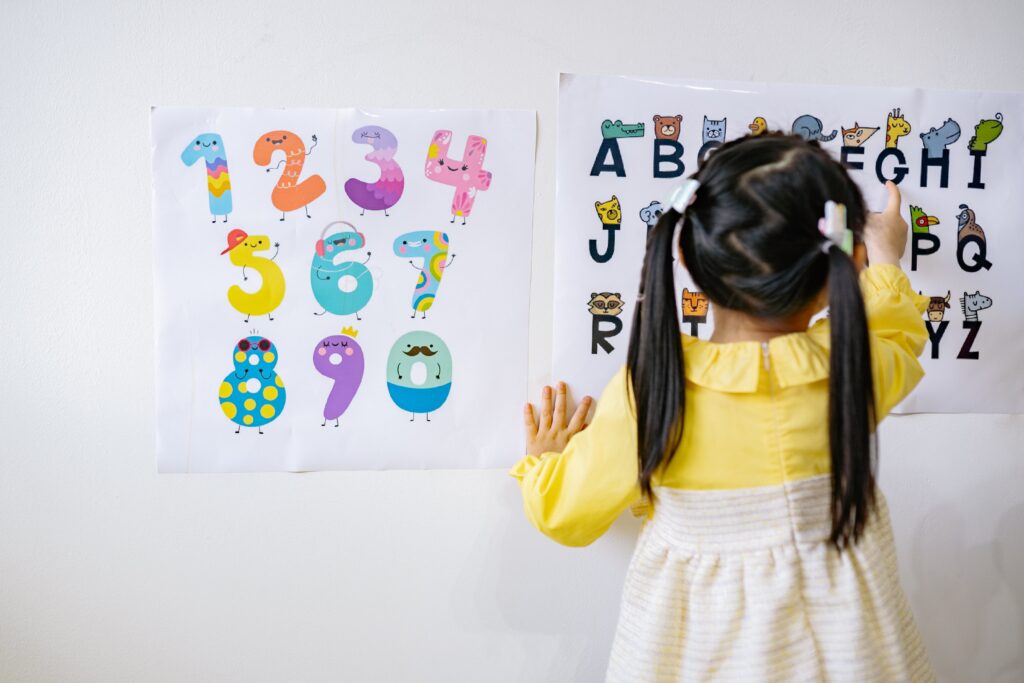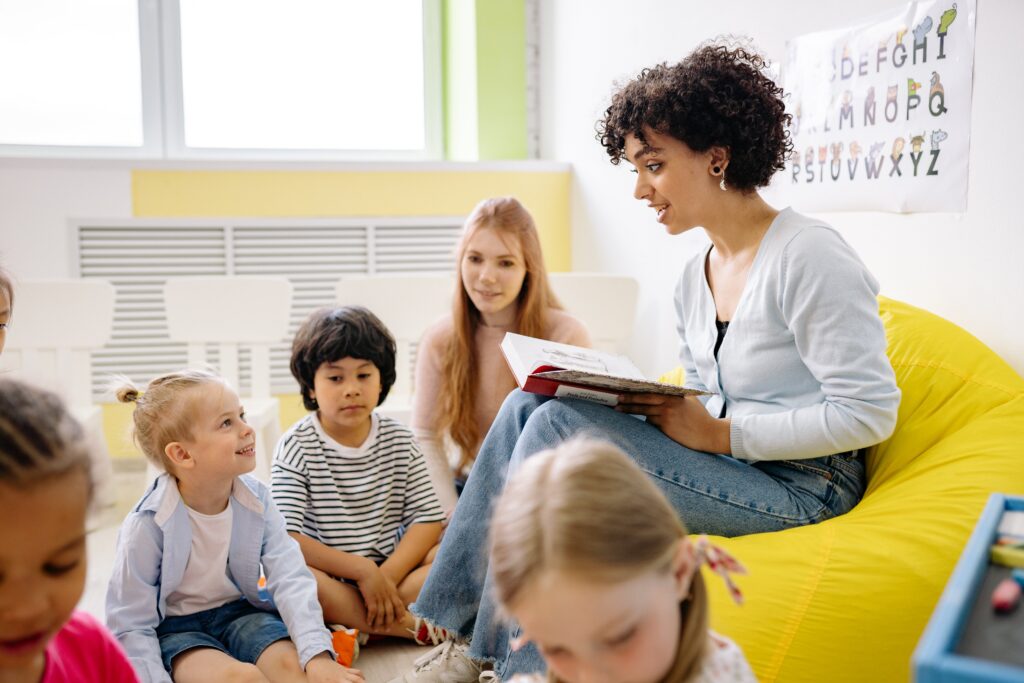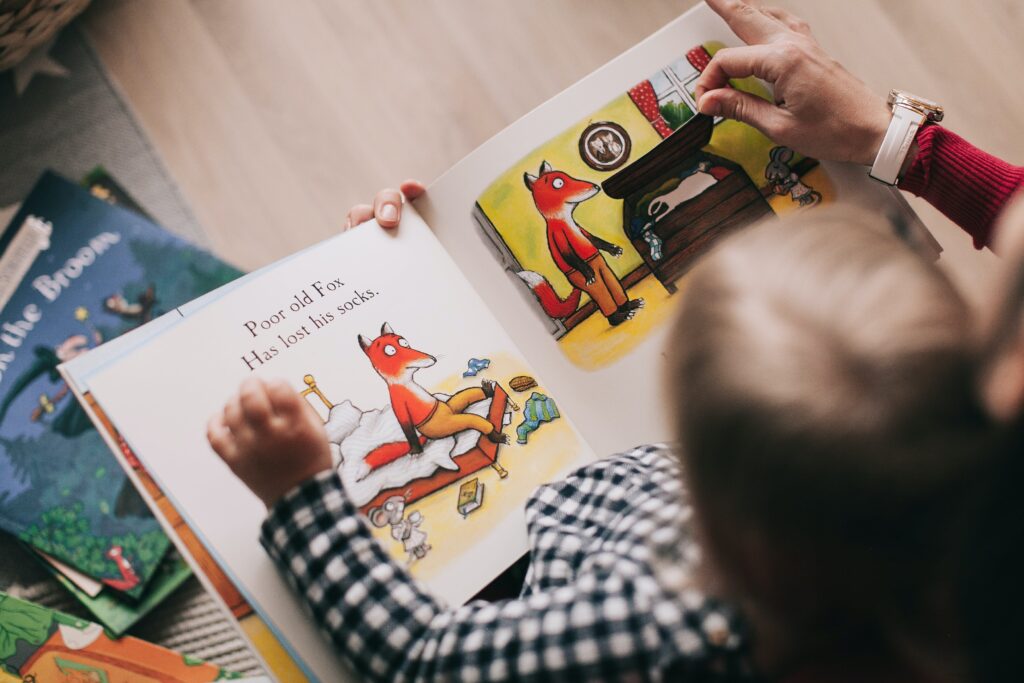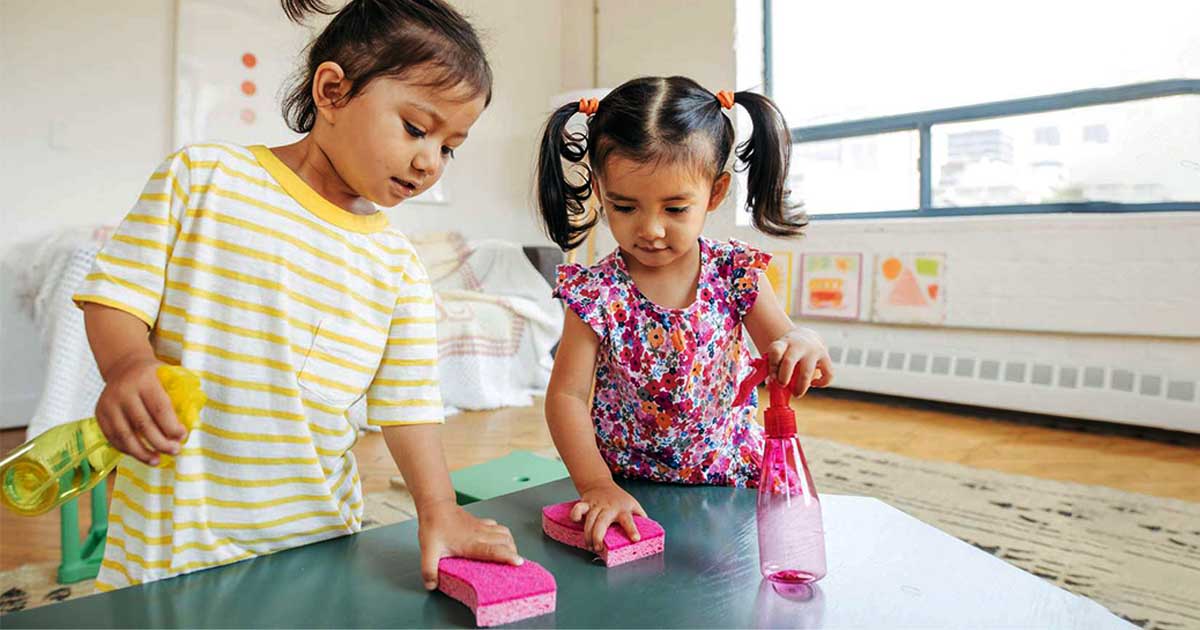Starting preschool is a major milestone for children. However, it often comes with lots of crying, uncertainty, and heel-digging.
According to experts, the main source of preschool separation anxiety in children is that they have no idea what to expect! This is because they have spent their lives till now in a protected and safe home environment!
The good news is that there are several steps that you can take as parents to reduce this heel digging in children!
By following the five simple tips we have for you, those tearful goodbyes might become happy steps. And those unsure moments can turn into happy moments as your child waves a merry school goodbye!
So let’s get started!
What is Preschool Separation Anxiety?
Preschool Separation Anxiety is a common emotional response that many young children experience when faced with the prospect of being separated from their parents or primary caregivers as they enter preschool.

It is a natural part of child development and typically arises around the time that children start preschool or daycare.
This anxiety happens because kids are not used to the new place, schedule, and people at preschool. When this happens, children might feel scared, nervous, or sad because being away from home and family, which usually make them feel safe, can be hard for them.
Symptoms of preschool separation anxiety can vary but often include clinginess, reluctance to leave parents, tears, and expressions of distress during drop-offs. Parents and caregivers need to understand that this phase is temporary and a typical part of a child’s growth.
Let’s have a closer look at how these symptoms manifest!
Read More: 18 Signs And Symptoms Of Generalized Anxiety Disorder
Preschool Anxiety Symptoms
Preschool anxiety symptoms may manifest in many different ways and it is important for you as a parent or caregiver to recognize these cues.
Being aware of your child’s behavior can enable you to give the required support and assurance during this phase of transition.
Typical symptoms include:
1. Clinginess
Your child may become clingy and unwilling to be separated from you or other caregivers. They might hold onto you tightly or refuse preschool.
2. Tears and Tantrums
Crying and emotional outbursts such as temper tantrums are common ways that preschoolers communicate their anxiety. This could happen when you are trying to leave them at school or anytime the idea of going to preschool comes up.
3. Physical Complaints
Some children communicate their anxiety through bodily complaints such as stomachaches and headaches. They use these symptoms to show that they feel upset inside of themselves.
4. Fear of Strangers
Children with preschool anxiety often feel uneasy around strange people including teachers and classmates.

In a preschool setting, your child may not be very open to making friends with those he/she does not know yet.
5. Sleep Disturbances
Anxiety can interfere with children’s sleep patterns. This could involve trouble falling asleep or waking up at night, as well as changes in overall sleep routines noticed by you.
Read More: What Is Sleep Training: 5 Expert Tips To Help Regulate Your Child’s Sleep Pattern
6. Regression
Your child might exhibit regression in behavior, such as reverting with thumb-sucking, needing a security object, or exhibiting behaviors typical of a younger age.
7. Avoidance of Preschool Activities
Some children with preschool anxiety actively avoid activities by isolating themselves during group play or refusing to interact with other kids in the class.
Empathizing with them becomes easy when we understand these signs because then we provide for our children accordingly and help them go through this natural development stage comfortably.
Tips For Separation Anxiety
To help both your child and yourself navigate preschool separation anxiety, you need to be prepared.
Do the following to create a smooth transition:
1. Be familiar with routines
Let your child know about the daily routine at school, mentioning how fun it is, and also some of their new friends. However, do not hype the school too much to avoid high anticipations and make the situation look intimidating.
2. Meet the teacher
If there are any open house events, make sure your child meets his/her teacher.

It is important for you, your kid, and their teacher to establish a good connection that will foster trust and ease.
Read More: Why Is Parent Engagement In Schools Important? 10 Hacks For Busy Parents
3. School visits
Visit before school starts. During this visit take them through different activities in the classroom. Use positive familiarity of the name of the school as an excitement builder.
4. Playdates
Make plans for play dates with children who will be in your child’s class this year before they start school. This way they can recognize their friends when they get there.
5. Have a Positive Attitude
Your attitude has a big impact on how your child perceives schooling. Don’t worry; act calm and confident without showing any signs of anxiety. Make them understand that everything will be just fine.
6. Role Plays
Use toys like dolls to demonstrate leaving and returning home which may involve pretend plays. This helps in making it clear that you will leave but return eventually thus temporary separation.
7. Reading
Ensure children’s books illustrating feelings at school are available for reading.

These tales serve as a warning about what lies ahead hence giving them room for their emotional exposure.
Read More: 8 Benefits Of Reading Regularly According To Science
8. Create Routine Chart
Produce with your kid a visual plan of preschool daily activities on paper which he/she can refer to during every day of learning at school by sticking this chart on his/her room wall or door. For kids, it is helpful because they always want to plan or anticipate what is likely to happen next so that they feel in control or have a predictable environment.
9. Belongings Make It Personal
Let a child mark his backpack or lunch box with his name. This can be done by making their items feel like home.
10. Small Steps Forward
Encourage little improvements, for example, when a day is managed without any crying during that time frame of preschooling. Praising works in bringing confidence to a shy child who has just joined the school.
In this way proactively addressing separation anxiety through these strategies will lead into easy ways for children transitioning into the world of preschool.
Read More: What Is Child Development? Understanding the 5 Crucial Stages of Child Development
How To Handle Your Emotions?
Here are some pieces of advice from experienced parents who have navigated the emotional journey of dropping their children off at preschool for the first time:
1. Share Stories
“Chat with other parents who’ve been through it. Hearing their stories makes you realize we all go through these jitters. It’s like a little parents’ support group.” – Lisa, mom of two.
2. Stay Positive
“Try to focus on the good stuff about preschool. It’s not just a separation; think about the cool friends they’ll make and all the fun stuff they’re going to learn.” – Mark, dad of three.
3. Establish a Goodbye Routine
“Create a little special goodbye thing. It’s like our little ritual before my kiddo heads into preschool. Makes the parting a bit easier for both of us.” – Sarah, mom of one.
4. Trust the Teachers
“Get to know the teachers. Once you trust them, it’s like leaving your kid with an extended family. They’ve got loads of experience, and that makes a difference.” – James, dad of two.
5. Bring a Comfort Item
“Let your kid take something from home. My little one has this tiny teddy. It’s like a bit of home comfort right there in their pocket.” – Emily, mom of two.
6. Celebrate Small Wins
“Every smooth drop-off is a win. It’s a step toward both your child’s independence and your own confidence. So, celebrate those small victories!” – Alex, dad of one.
7. Connect with Other Parents
“Being part of a parent group is a lifesaver. You’re not alone in this. Connect with others who are in the same boat—it makes a world of difference.” – Jessica, mom of three.
8. Focus on Self-Care
“Take a breather after drop-off. Do something for you, even if it’s just chilling with a cup of coffee. It’s a moment to recharge and reset.” – Brian, dad of two.
9. Be Open to Change
“Flexibility is key. It’s a learning curve for everyone. Be open to changes, and don’t rush it. Your child needs time, and so do you.” – Rachel, mom of two.
10. Trust Your Instincts
“You know your kid best. If something feels off, talk to the teachers. Trust your instincts as a parent; you’ve got a unique connection with your little one.” – Daniel, dad of three.
Be patient with yourself, and over time, both you and your child will likely become more accustomed to the preschool experience.
Read More: Is Homeschooling Better For Mental Health? 5 Strong Reasons
A Word From Mind Family
As we bring this discussion on preschool separation anxiety to a close, we would like to send our sincere support to all parents dealing with this important event in their lives.
The emotional rollercoaster that comes with taking your child to preschool is completely natural and it’s okay to feel excited, scared, sad, and unsure;
Remember, you are not by yourself along the way. Dozens of parents have passed through these emotions and have grown more confident in their children’s resilience as a result.
Borrow from the wisdom of those who have experienced what you are about to face. Tell others about it, stay positive, and believe that eventually, you will adjust to the thrilling world of preschool together.
Frequently Asked Questions (FAQs)
1. What is preschool separation anxiety?
When young children face separation from their parents during preschool, the most common emotional reaction is known as preschool separation anxiety. This comes out naturally at the beginning of preschool and is instigated by unfamiliarity with a new setting.
2. What are some preschool anxiety symptoms?
Symptoms include sticking close to caregivers, crying easily, physical complaints (tummy aches), not wanting to be with strangers, difficulty sleeping, going back in development, or avoiding some activities. These indications are signals that show the emotional stress experienced by kids when they change from being at home to joining school.
3. What are some tips for separation anxiety?
To ease separation anxiety, one should become familiar with routines, meet the teacher, visit the school, arrange playdates, maintain a positive attitude, role-play, read books, create a routine chart, personalize belongings, and celebrate small accomplishments to improve self-confidence and enthusiasm.











